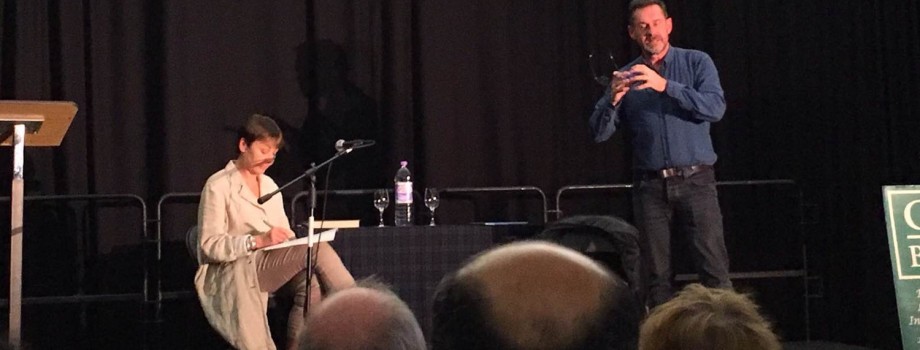
Brighton, Hove & Sussex Sixth Form College (Bhasvic) played host to Brighton’s political winner, Caroline Lucas, in conversation with Channel 4’s Economic editor Paul Mason. On November 12, 2015 residents of Brighton & Hove were lucky enough to hear a shortened rendition of Paul Mason’s new book ‘PostCapitalism’ (1).
Mason’s central argument: capitalism has reached its limits and lost the ability to adapt; our current financial system is no longer fit to serve society. PostCapitalism primarily focused on the failure to ‘adapt to information technology’, although Mason did highlight the inadequate responses to climate change and demographic ageing.
In Mason’s story of an alternative future, we could make the number of working hours minimal. Capitalism creates ‘bullshit jobs’ (2) and over half of the menial jobs could be automated. Caroline Lucas shared this vision of a low-carbon, less labour intensive future, placing a heavy impetus on a network-based, collaborative economy. From the point of view of the only Green MP, a non-market, social economy is an exciting prospect.
How best then to form a social economy? It is perhaps the concept of networks that arose as Mason’s pivotal answer. If you believe in social change, create a network you believe in. The more people in a network, the more important a network becomes. Noam Chomsky, the world-renown linguist and political activist, has long advocated this outlook. Chomsky equally stresses the public to engage in a diverse range of news media.
It is striking that a mainstream news editor’s thesis resonated so strongly with green party politics. That said Mason appeared to hastily skim over environmental concerns. Clearly though, Mason and Lucas found common ground, particularly when it came to what we can do together to create a post-capitalist future (3). On a local level we can join and strengthen networks such as Goodmoney and build complementary currencies that create new ways to connect and exchange within the community. It is only through uniting locality and collectivism – with an equal emphasis on lobbying governments – that we can create a climate of social change.
——————————————————————————————————-
1) http://www.theguardian.com/books/2015/jul/17/postcapitalism-end-of-capitalism-begun
2) http://www.theguardian.com/books/2015/mar/21/books-interview-david-graeber-the-utopia-of-rules
3) https://www.opendemocracy.net/ourkingdom/caroline-lucas/postcapitalism-is-it-what-we-greens-have-always-been-arguing-for